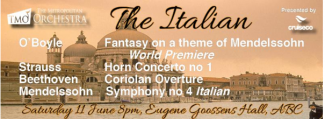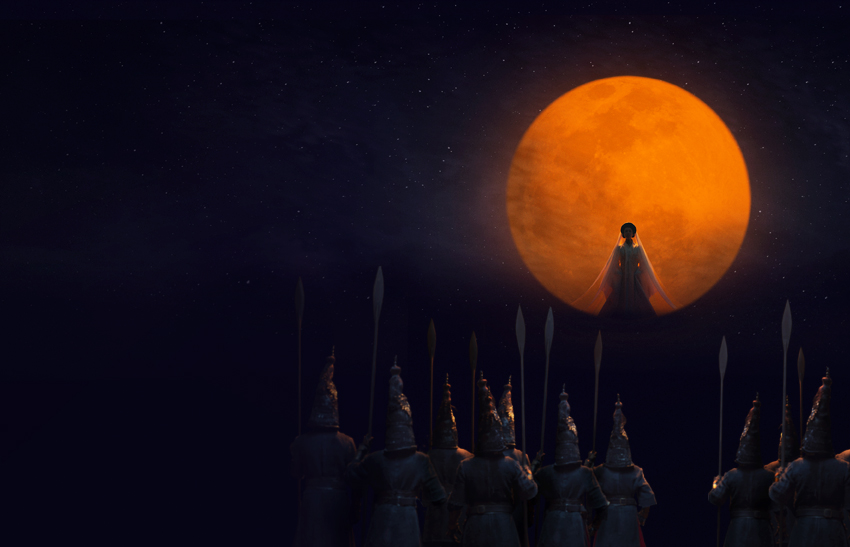Chamber Opera Review: Acis And Galatea/ Ensemble Polyphème

Acis and Galatea/ Ensemble Polyphème
Paddington Uniting Church
10 November 2019
Written by Alex Siegers
Ensemble Polyphème is Sydney’s newest “historically informed” performance ensemble” founded by harpsichordist Nathan Cox and tenor Nathan Bryon. For its inaugural season the ensemble presented Acis and Galatea, (HWV 49), a musical work by George Frideric Handel with an English text by John Gay which premiered as a one-act masque in 1718.
Acis and Galatea is often considered the epitome of pastoral music, masterfully blending elements of the English masque tradition with Italian opera. It tells the story of Ovid’s Metamorphoses. Simply put, Acis and Galatea are in love; Polypheme tries to take Acis away from Galatea; Polypheme kills Acis, Galatea turns Acis into a fountain.
Directed by Christine Douglas, Ensemble Polyphème presented the 1718 version of the chamber opera, scored for five singers and a lean instrumental ensemble of two violins, two oboes, two recorders, cello, double bass, theorbo and harpsichord, featuring minimal costumes, props and staging.
Opening with a joyful chorus, Oh the pleasure of the plains, the scene was set for a delightful and transparent production. The athletic chorus frolicked around the church flanked by the audience on either side of the stage, which occasionally caused them to feel a little like they were watching a tennis match, alternating between the cast members around the audience and the orchestra at the far end of the church. Yet, it was a creative and engaging use of the space.
Soprano Chloe Lankshear, masterfully navigated Händel’s virtuosic lines. Her coloratura was exquisite. She expertly played the role of Acis’ coy love interest Galatea, her eyes luring the audience in, gamboling barefoot around the carpeted stage.
Tenor Nathan Bryon, playing Acis, displayed admirable talent at just 23 years of age. His voice is large, and possibly too heavy for the lithe music of Händel. At times he struggled to navigate the fast passages. Bryon wasn’t as convincing as Lankshear at playing a star-crossed lover, and audiences were left wanting the two to show some physical manifestation of the love so exquisitely declared in Happy We!
Initially, tenor Spencer Darby, playing Damon, was overwhelmed by the volume of the orchestra, which reverberated in the high-ceilinged space. His character wasn’t as convincing as his colleagues’, seeming a little insincere. However, he came into his own in Act II with Would You Gain The Tender Creature, in comedic combination with Polyphemus, played by Andrew O’Connor. It was a fantastic use of the intimate setting, with both O’Connor and Darby getting incredibly up-close-and-personal with a few fortunate audience members.
O’Connor entered the stage with a menacing presence, in a wonderfully cast role. He embraced the intimate setting and instantly developed a great rapport with the audience. His performance of O Ruddier Than The Cherry was pushed to the extreme with lip-licking, face-wiping and tongue-flicking, making the most of his role as ‘the giant’ Polypheme.
The chemistry between O’Connor and Lankshear was clear, but the playfulness and cheekiness between the two performers made it difficult to believe that Galatea really loathed Polypheme – she played the flirtatious lover more convincingly than the disgusted damsel and there were moments where a hint of a smile crept onto Polypheme’s lips, joining the audience’s laughter at the spectacle.
The highlight of the performance came at the very end of the opera with Mourn, All Ye Muses! The chorus was perfectly balanced and warm. The line “the gentle Acis is no more” sung a cappella was absolutely exquisite, creating a pinnacle of chorus work by this talented ensemble.
The peeled-back performance, with simple costumes and no props, was refreshing, leaving no distractions, but equally, nowhere for the performers to hide. This was both a strength and a weakness for the production. Singers couldn’t avoid technical shortcomings and unconvincing staging, but similarly, it was joyous to be able to join these talented young musicians in such close quarters, performing music they clearly loved.
Congratulations to Nathan Cox and Nathan Bryon on a successful inaugural season. I look forward to seeing what other exciting and dynamic productions the Ensemble Polyphème put together. It is incredibly important for the Australian performing arts scene to have performance opportunities and artist development here at home.
Alex Siegers for SoundsLikeSydney©
Alex is an experienced chorister and soloist across jazz, sacred, classical and pop genres with leading ensembles in Australia. Since relocating to Sydney in 2012, Alex has been a full-time chorister with the Choir of St. James King Street, also performing with The Song Company, Musica Viva, The Marais Project, The Choir of St Mary’s Cathedral, Sydney Chamber Choir, Sydney Philharmonia Choirs, Luminescence Chamber Singers, Cantillation, Vocal Australia Singers, and The Choir Lab. She has performed and recorded with contemporary musicians including Felix Riebl, Ollie McGill, Julia Jacklin, Alex The Astronaut, Bobby Fox, Liz Hughes, Goldheist and Jessica O’Donoghue and as a jazz vocalist and looping artist in her own right, at events and festivals including Beams Arts Festival, UCSB Amplified in Santa Barbara, Light The Night, Singing At The House in Sydney, Get Vocal Festival and LA A Cappella Festival, Los Angeles. Alex completed a Bachelor of Music and Arts in Jazz Voice and Linguistics at the Sydney Conservatorium of Music in 2017. When she isn’t singing, Alex is the Operations and Communications Assistant at the Music Performance Unit at UNSW.







